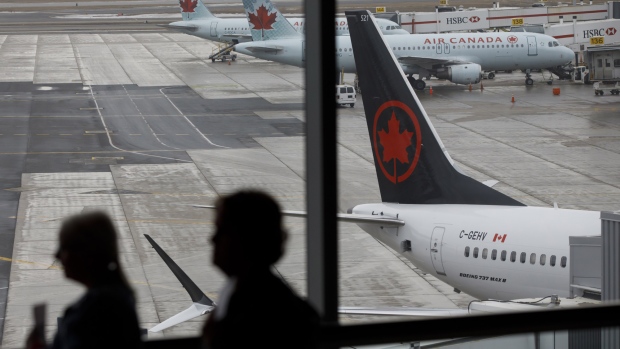Mar 15, 2019
Air Canada suspends 2019 forecasts amid 737 Max groundings
, BNN Bloomberg

Air Canada (AC.TO) is suspending financial forecasts for 2019, citing "current uncertainty" relating to the Boeing 737 Max groundings.
On Feb. 15, Air Canada forecast cost per available seat mile would rise 2.0-3.0 per cent in the first quarter of 2019, as well as the full year. It also estimated depreciation, amortization and impairment expenses would rise $225 million this year, and anticipated $80 million in aircraft maintenance expenses.
At an investor day meeting on Feb. 28, Air Canada forecast annual EBITDA (earnings before interest, tax, depreciation and amortization) margin of 19 to 22 per cent, annual return on invested capital of up to 20 per cent, and a maximum leverage ratio of 1.2 by the end of this year.
The decision to abandon those estimates, which was announced Friday morning, comes in the aftermath of Transport Canada and the U.S. Federal Aviation Administration joining a wave of regulators grounding 737 Max aircraft as investigators probe the circumstances that led to the deadly crash of an Ethiopian Airlines flight last weekend.
Air Canada is maintaining its forecasts for EBITDA margin and annual return on invested capital for 2020 and 2021, in addition to its cumulative free cash flow forecast of up to $4.5 billion for 2019-21.
According to a slide in Air Canada's investor day presentation, the airline expected to have up to 36 Max jets in its fleet this year.






